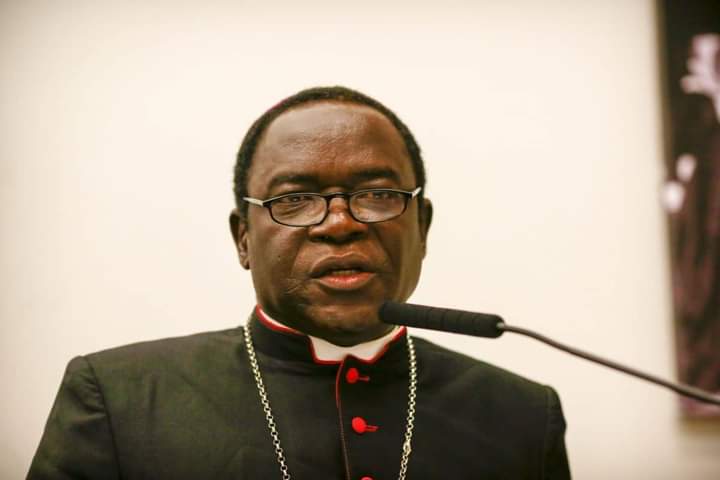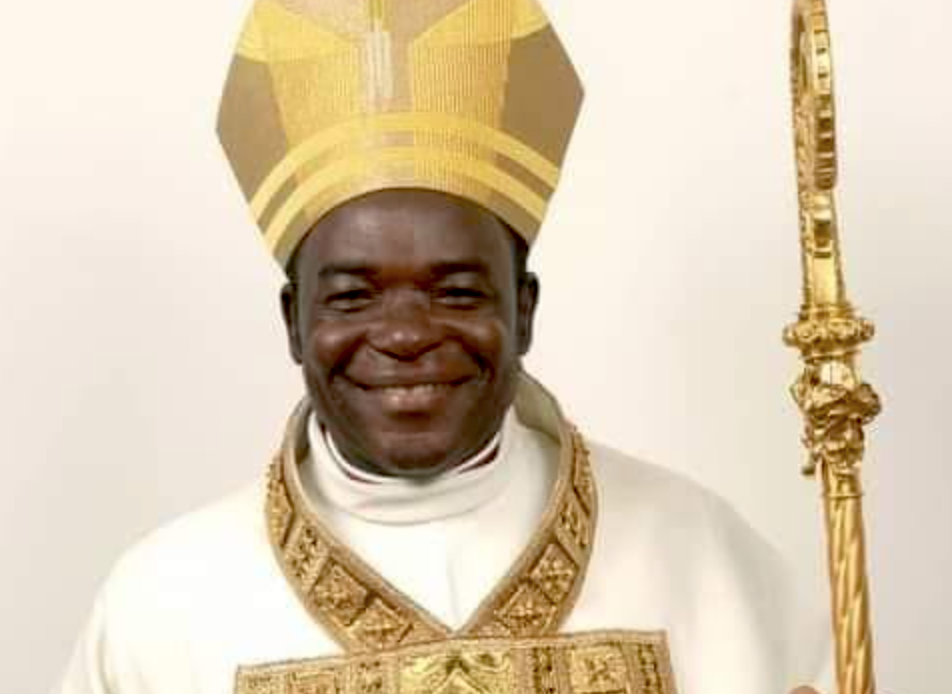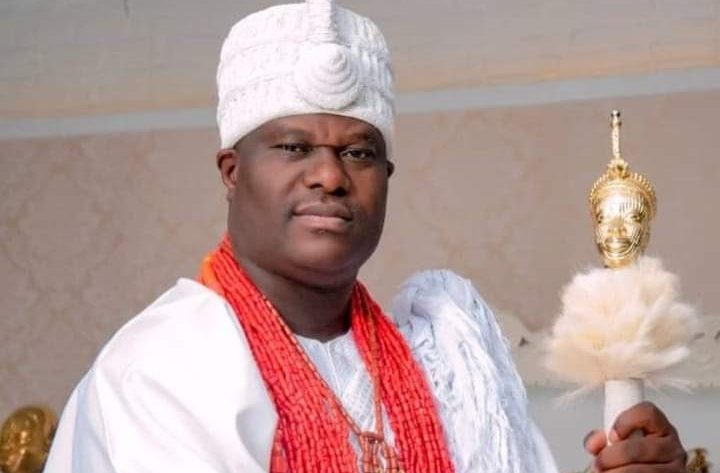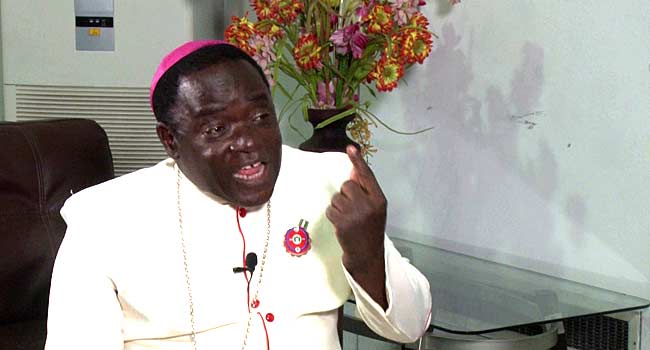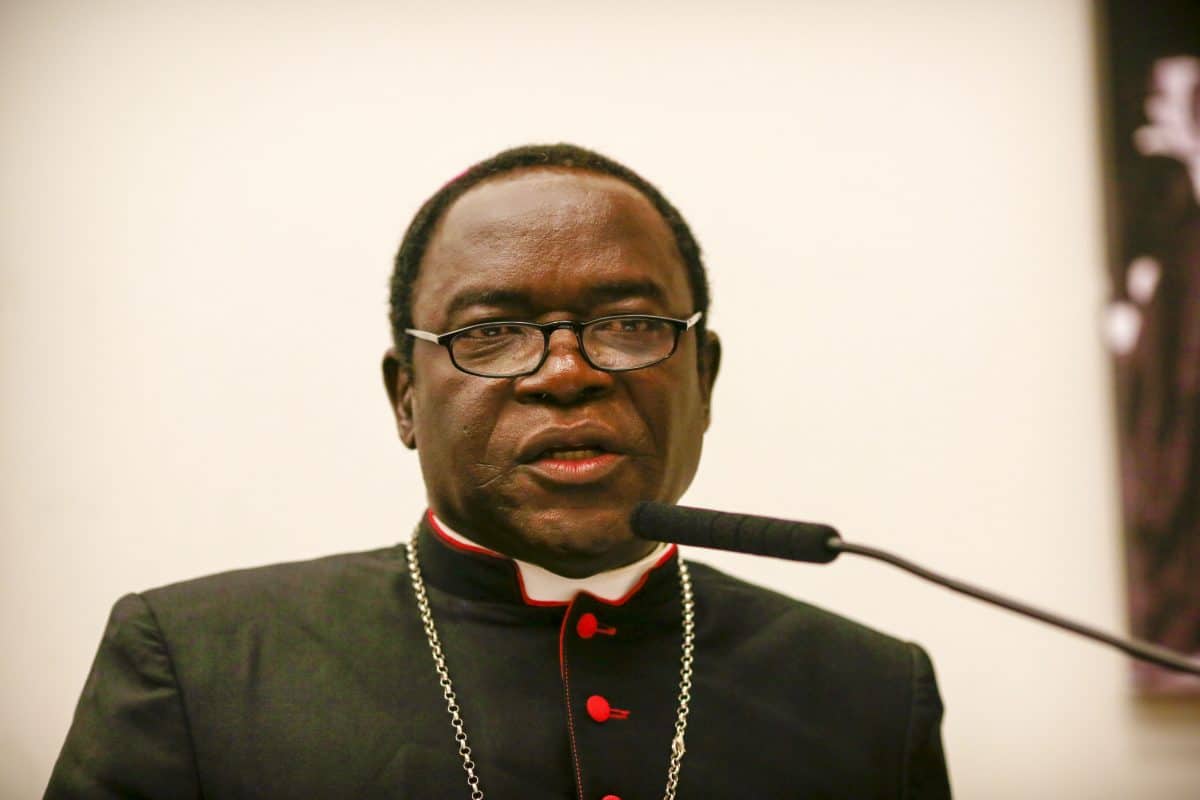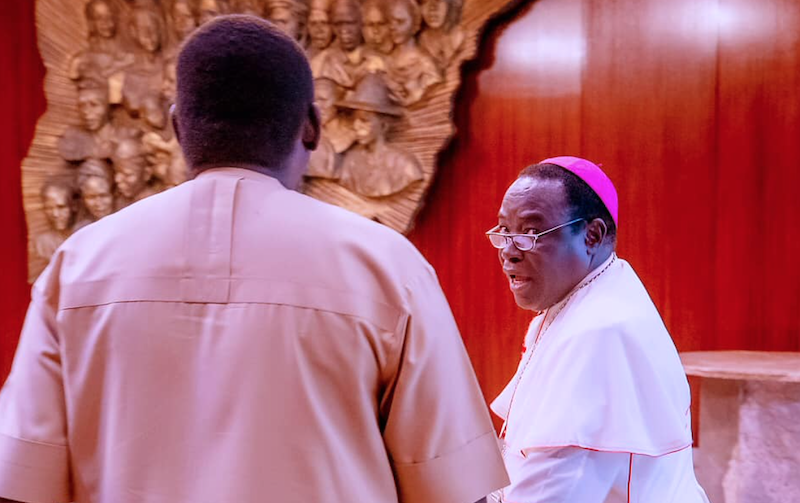As Easter 2023 is marked across the globe today, Bishop Matthew Hassan Kukah of the Roman Catholic Diocese of Sokoto has sent a strong message to Nigeria’s President-elect, Asiwaju Bola Ahmed Tinubu.
Bishop Kukah advised Tinubu that the most urgent task facing Nigeria is not infrastructure or the usual cheap talk about the dividends of Democracy.
“These are important but first, keep us alive because only the living can enjoy infrastructure.
“For now, the most urgent mission is to start a psychological journey of making Nigerians feel whole again, of creating a large tent of opportunity and hope for us all, of expanding the frontiers of our collective freedom, of cutting off the chains of ethnicity and religious bigotry, of helping us recover from the feeling of collective rape by those who imported the men of darkness that destroyed our country, of recovering our country and placing us on the path to our greatness, of exorcising the ghost of nepotism and religious bigotry,” Kukah said.
In the Easter message, the Sokoto Catholic Bishop also sent a strong message to outgoing President Muhammadu Buhari and supporters of Mr Peter Obi, presidential candidate of the Labour Party in the just concluded 2023 elections known as Obidients.
Kukah’s 2023 Easter message was also passed to Nigerian youths and the Supreme Court of Nigeria, which Nigerians and indeed the world is watching with keen interest to decide issues arising from the 2023 general election.
Read Bishop Kukah’s 2023 Easter message below:
NIGERIA: RECONCILIATION POSTPONED?
Matthew Hassan Kukah, Catholic Bishop of Sokoto Catholic Diocese, Easter 2023
1: Easter and our Inconclusive Dreams:
The resurrection of Jesus Christ is everything for the Christian faith. Without it, every pillar and the foundation of the Christian faith collapses. It is the single most shocking and dramatic event in human history. Over two thousand years later, the thought of it still seems irrational, absurd, fraudulent, nonsensical, unreasonable, grotesque and even scandalous. St. Paul eloquently said that the idea of the resurrection was foolishness to the Greeks and a stumbling block to the Jews (1 Cor. 1:23). Accepting the resurrection has consequences because we have to then accept that true, there is no other name by which there is salvation (Acts 4: 12). St. Paul repeats: If there is no resurrection, then Christ has not been raised, if Christ has not been raised, then our faith is in vain and you are still in your sins (1 Cor. 15:14).
Preceding the resurrection are the three days, from Good Friday to Sunday (known as the Easter Triduum), marked by fear, anxiety, uncertainty, disquiet and wariness. The passion of Jesus Christ is the story of our lives with its ebbs and flows. It is a story of sin and redemption. His triumph assures us that even when it seems that God is asleep and does not care, God wakes and subdues the turbulent seas (Mk. 4:38). For this reason, there is sure hope of victory for all people who strive to follow Christ and His Way. I am the resurrection and the life. Anyone who believes in me, though he die, shall live (Jn. 11:35). This is the power of the resurrection that mocks the powers of this world. Resurrection, not death, has the final word of History!
2: Our 2023 elections and our Future:
The much-awaited elections, so full of promise have come and gone, well, not yet, some might say. They generated so much enthusiasm and excitement among our citizens who believed they would be a defining moment for our country. The buildup was marked by so much expectation about a transition to a new order in Nigeria. The outgoing President had given his word that his legacy would hang ensuring that we have successful elections. The Electoral Umpire, basking in self- confidence, assured Nigerians that these would be the most transparent and seamless elections in our history. We took the assurances in good faith.
Literally half of the population had registered for the elections and were armed with their voters’ cards. On election day, the national mood had a sense of an Easter metaphor to it. First, like the journey to Jerusalem, joyous citizens filed out to their designated polling units. Our citizens, fired by patriotism, braved the harsh weather (rain or heat), hunger, thirst, depending on their locations across the country. As the day wore on, we had news of the usual glitches about election materials arriving late, a song that sounded familiar.
Much later in the day, there were reports that the scenes were getting ugly with evidence of a return to our old ways now known as voter suppression: ballot box snatching, intimidation, physical violence against ordinary citizens, with reported incidents of injuries and outright killings. Amidst all of this was the utter chaos around the uploading and transfer of the results. INEC’s garment of legitimacy and credibility was now caught up in a barbed wire of conspiracy theories. As the day drew to a close, a cloud of doubt spread across the country as the excitement and high expectations vaporized.
3: The Hate that hate produced:
Nigerians now look back with utter shock as they survey the debris and litter of mangled bodies, destroyed ballot boxes, stolen or torn ballot papers. Yesterday’s dreams turned into a nightmare. With dawn came ethnic and religious profiling, new productions of hate speeches, threats, and gaslighting. The social media gradually became the conveyor belt for the diffusion and distribution of hate. The questions are more than the answers: What happened? Where did this hate come from? Has it been living within us? How did we not see it coming? Were we just blind or did we get carried away by the promises of INEC? Were we convinced that we had crossed the threshold of ethnic and religious bigotry? Did we think that the political class had changed its ways? Were we really in a Democracy? Where and why did all go wrong? Can we learn from this? Can we gather the debris and like a game of puzzle start put things back? How can we climb out of this valley of dry bones? Are there lessons that the cross and resurrection of Jesus can teach us? I say Yes.
I recall the 1959 Documentary, The Hate that Hate Produced, which was made at the height of the gospel of hatred that the Nation of Islam deployed as a means of mobilising for the redemption of the black man in America. The Nation grew out of a selected narrative and juxtaposition narratives of the black experience deliberately calculated to generate and re-enforce a sense of victimhood and anger at oppression by whites. The idea then was to justify violence against the white person who was presented as the devil. The proponents of this message were later consumed by the same hatred which gradually infiltrated their own ranks. The question that followed was, who is to blame for the hate that hate produced? Hatred has no redeeming values. The current state of hate does not define us and we need to slow it down. We must listen to one another and seek reconciliation. In the end, only true Christian love can redeem us.
4: Is Hatred our Political Inheritance?
Every election brings more frustration and anger and the victims all turn on themselves. The circles have gone on and on. Little wonder, fewer and fewer citizens want to risk their lives for what promises them only blood, tears, injury and death. While citizens seek outlets to express their grievances, they often find that the doors of opportunity to express their dreams are blocked. Misuse of power by the political class creates the conditions for violence. Citizens struggle to use their votes to choose those they can trust but the violent insist on taking power by the means they know best. It is therefore a mistake to think that violence occurs because Nigerians do not love themselves due to differences of ethnicity or religion. No, violence occurs because the politicians do not love and respect us. We need more respect. Our politics is therefore a clash between right and wrong, justice and injustice, love and pain. Violence is often the last gasp of victims who can’t breathe.
5: Waiting Outside the Tomb:
Nigerians are so collectively frustrated that it is almost impossible to convince them that they can find justice. Everywhere you turn today, Nigerians look forlorn, disconsolate, lugubrious, and despondent. Our swagger is gone. We look like men and women returning from a funeral, murmuring discontentment in hushed tones. It is therefore not surprising that even the victors are blowing a muted trumpet.
Unpleasant as this may sound, this blood that they have shed could be seen as blood of the birth of a new Nigeria. It can become the blood of our new birth, our redemption. However, we cannot accept that violence and bloodshed are the normal route to power. Because like the blood of Abel, the blood of those who have been murdered continues to cry out to heaven seeking for justice ( Gen. 4:10). Though we are tempted with the drudgery of fatigue and despondency, unlike the apostles in the garden of Gethsemane, we should be ready to wait in patience for one hour or more (Mt. 26:40). Our dream is merely in suspense, a punctuation mark in the book of our unfinished greatness. Let us see this as a detour, a diversion. We still have our roadmap in our hands. It is time to return to the highway so as to choose a road less travelled, a road of hard work, sacrifice, dedication, and hope. The ugliness of yesterday must not define us. We must finish this journey together. We shall neither relent, slow down nor give up. The resurrection is a promise that despite the seeming hopelessness, God’s plans cannot be frustrated. Those who position themselves at night with stones to guard the entrance of the tomb will find themselves confounded at dawn by an empty tomb. A new Nigeria will emerge from the tombs of our seeming helplessness.
6: The crucifixion: A scapegoat or a lamb of sacrifice?
In resolving our problems, the easy part is to seek out the scapegoats. We have done so by exploiting our differences and turning them into weapons of war. Stereotypes are cheap commodities for blackmail especially in states weakened by a corrupt political class. Those beating the empty drums of hate are leading their followers to places where the streets have no names. They have lynched and murdered their imaginary enemies. The evil men on the streets are not the disease afflicting our nation. They are merely symptoms. The real diseases are those of us, men and women, sitting on the thrones of influence and power, those who adopt silence as a tactical weapon of choice, those who look the other way and who use silence as an excuse to sit on the fence of deceit. Like Pilate, they rise on the throne, wash their hands and return to the shadows, afraid to speak justice, and turn a blind eye to the truth (Mt. 27: 24). Those of us who take this position have the blood of the victims on our hands and are complicit.
Sadly, our current crisis should be only a paragraph in the book of our nation’s trials, trauma and search for healing. Each of us should be courageous to take a stand. During the trial of Jesus, Peter exhibited two contrasting personalities in one. First, facing the army of those who had come to arrest Jesus, armed with dangerous weapons, he fearlessly pulled out his sword and cut off the ear of a very influential member of the crowd, Malcus, High Priest’s slave (Jn. 18:10). In doing this, Peter showed that he was ready to die to stop injustice. However, down the line, as Jesus is brought to trial, the same Peter, weighed down by fear, decided to follow Jesus from a distance (Mt. 26: 58). Following Jesus from a distance exposed Peter’s cowardice and leads him to deny Jesus three times. When we are distant from God, we are exposed to danger and fear. Injustice feeds on the wine of fear and suspends truth. If we are close to God, we have no fear because, perfect love drives out fear (Jn. 4:18).
7: We are angry: We want justice:
Yes, we are all angry and we all want Justice. Yes, we have the right to be angry and we should be angry. But, angry about what, angry with whom and justice for whom? St. Thomas Aquinas, known as the angelic doctor of the Church, said: “He who is not angry when there is a just cause for anger is immoral because anger looks to the good of justice. If you can live with injustice without anger, you are immoral as well as unjust.” You cannot develop empathy for a victim unless faith enables you to love him/her as a child of God. If we allow injustice in our society while claiming to be believers, then as St. Paul said, we are empty gongs (1 Cor. 13:1).
Anger is a legitimate emotion and it possesses some curative and even redemptive uses. When motivated by a higher ideal, a higher sense of honour, it transforms into righteous indignation and we are compelled to hold up a sign that says, No, Enough is enough. Anger against injustice and misuse of power is a just cause. That is why Jesus whipped the traders out of the temple (Mt.21:12). The challenge is how we process it, how we focus on its roots. We have to ensure that anger does not hold us prisoners. In all, our journey is long and winding, exhausting but promising, sorrowful but expectant.
Whatever may be the nature of the imagined human solution to the problems of violence in our society, the human heart must undergo spiritual circumcision (Rom. 2:28, Gal.5:6, Phil. 3:3). Rather than focus on the scapegoat or the lamb of sacrifice, all of us need to pause and ask if we were participants or guilty bystanders in the violence among us. Pope Francis has asked us in his Easter message to “go into our own wounds, to look at the tree of our humiliation, the cross of Jesus, to ensure that our hopes are not sealed in a drawer. In this way, our long-awaited peace can come”. Peace making is not a specialised subject. It is a gift of God that is within each of us. It is about how we treat one another. This is why the urgent task before us is to restore the dignity of the Nigerian nation and her citizens. Nigerians have for too long been beaten by the rain and the sun of injustice. There can be no peace when those who live in glass houses, have mastered the art of throwing stones to those they have kept in the rain and under the scorching sun. Until Lazarus and the rich man, Dives, can sit around the same table, there can be no just peace or justice (Lk. 16:19-31). Peace is not the absence of war. It is the fruit of justice.
8: An Appeal to Nigerians:
8: 1: To our President Muhammadu Buhari, GCFR
As you prepare to return to Daura or Kaduna, I do not know if you feel fulfilled or that you met the tall dreams and goals you set for yourself such as: ending banditry, defeating corruption, bringing back our girls, belonging to everybody and belonging to nobody, selling off our presidential fleet and travelling with us etc.
You may have followed my engagement with you through these Messages over the years. You publicly referred to me during one of our visits as your number one public critic with a huge smile. I commend you for the fact that you have known that none of this was done out of malice but that we want the best for our country. May God guide you in retirement while we all embark on the challenge of reclaiming the country we knew before you came.
8:2: To the incoming President:
I am hopeful that you will appreciate that the most urgent task facing our nation is not infrastructure or the usual cheap talk about dividends of Democracy. These are important but first, keep us alive because only the living can enjoy infrastructure. For now, the most urgent mission is to start a psychological journey of making Nigerians feel whole again, of creating a large tent of opportunity and hope for us all, of expanding the frontiers of our collective freedom, of cutting off the chains of ethnicity and religious bigotry, of helping us recover from the feeling of collective rape by those who imported the men of darkness that destroyed our country, of recovering our country and placing us on the path to our greatness, of exorcising the ghost of nepotism and religious bigotry.
8:3: To the Honourable Justices of the Bench:
You face difficult challenges ahead and you are mortals. The future of our country hangs on your deliberations. I will not judge you. I can only pray that God gives you grace. It will be up to you to decide how you use that gift which no amount of influence or power can buy.
Nigerians are saddened that your sacred temples have been invaded by the political class leaving the toxic fumes that now threaten your reputation as the last hope for all citizens. It is sad that your hard earned reputation is undergoing very severe stress and pressure from those who want justice on their own terms. Nigerians are looking up to you to reclaim their trust in you as the interpreters of the spirit of our laws. The future of our country is in your hands. You have only your consciences and your God to answer to when you listen to the claims and counter claims of Nigerian lawyers you and have to decide the future of our country. We pray that God gives you the wisdom to see what is right and the strength of character and conscience to stand by the truth. You have no obligation to please any one. Our future depends on how you arrive at your much awaited judgement.
8: 4: To the Youth of Nigeria:
I salute your energy and courage. You fought a good fight across party lines. Your engagement and involvement substantially changed the contours of our politics. Things will never be the same again. However, the youth do not belong to any single party, no matter the temptation. You must look at the mistakes of the past and avoid them. Note that your actions today will shape tomorrow. Learn the rules of good sportsmanship, know rules, know your roles, know when to fight, what to fight for and know when to walk away so you can embrace other fights. In all, most of you did well, but some of your colleagues lost their lives in the hands of members of your own groups. Keep the dreams, but know the contours of the long road ahead.
9: And finally, looking ahead: A Prayer for Nigeria:
Oh God, our creator, we thank you for the gift of our dear country. We have not lived up to the vision that you have for us – a vision of justice, peace, unity, and prosperity for all our children. Yet, we thank you for your mercy upon us. Father, please guide our transition to a new dawn. Banish evil and insecurity from our land. Give us the spirit of forgiveness and heal us from our infirmities, that blindness which makes us forget that we are brothers and sisters, children of One Father. In your mercy grant eternal rest to those who have died and give us the strength to start again. May the power of our Risen Christ be upon us and our dear country. Amen.
A happy Easter, Nigerians.
